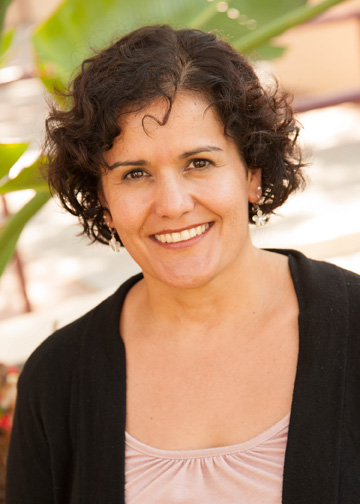 When a person asks about becoming Catholic, our reflex kicks in to refer them to the RCIA process in a parish. What happens when an inquirer happens to be incarcerated? It is likely that the typical response has been to use the rite of baptism intended for infants. The thinking is probably that RCIA is too much and too complicated to navigate behind bars, or we are unsure how to initiate when an inquirer is unable to attend the default weekly session.
When a person asks about becoming Catholic, our reflex kicks in to refer them to the RCIA process in a parish. What happens when an inquirer happens to be incarcerated? It is likely that the typical response has been to use the rite of baptism intended for infants. The thinking is probably that RCIA is too much and too complicated to navigate behind bars, or we are unsure how to initiate when an inquirer is unable to attend the default weekly session.
The truth is that mercy and dignity are at the core of ministry to those who are incarcerated. We should not shortchange these inquirers; we should provide them with the fullness of the church’s tradition and rituals — including the RCIA process.
The desire for change
Yes, this will require adaptations to how the RCIA process is usually lived out in a parish setting. However, if the RCIA is “designed for adults who, after hearing the mystery of Christ proclaimed, consciously and freely seek the living God and enter the way of faith and conversion as the Holy Spirit opens their hearts” (RCIA 1), then it seems to be not only appropriate but essential to make this process available to those who are incarcerated.
It should not be surprising that inquirers would surface behind bars. Those who are awaiting trial or have already been sentenced may desire a change in their lives and wish to begin to or revisit a relationship with God. Ministry to the incarcerated usually provides for contact with chaplains and religious volunteers, regular liturgical services, bible study, and religious items such as bibles and rosaries. When these movements lead a person who is incarcerated to seek a life in Christ, it is good for us to be ready to respond generously.
Some considerations when it comes to implementing the RCIA process behind bars:
Review the rite
Review the rite in light of the unique setting; remember the basic principles that remain true regardless of circumstances.
Do inquiry
Meet with the inquirer and listen to their story and stirrings of faith, just like one would do in a parish setting. From the onset, be transparent about any limitations to confidentiality that apply.
Go slow
Beware of the temptation to rush the process. Get a sense of the person’s timeline and plan accordingly. For example, if the person is in jail for only a short time, then it would make sense to serve as a bridge with a parish. Otherwise, take it a day at a time with ongoing discernment.
Celebrate liturgy
Encourage the inquirer to attend the regular Catholic service. If there is none, or if the inmate is restricted from attending, incorporate a Liturgy of the Word in one-on-one meetings.
Provide resources
Provide resources that will support and encourage their prayer and sense of the Church. These may include a bible, a book with the daily or Sunday readings (a number of publishers provide these free of charge for inmates), and other literature that addresses their questions and reflects their literacy level. Abide by facility protocols when it comes to distributing materials, including staff review. There may be a prohibition on staples, paper clips, or hard covers.
Maintain privacy
For safety reasons one should not share of the inmate’s initiation without their permission. This is especially true if the person is in protective custody.
Identify a sponsor or godparent
Have the inmate identify a person in their life who can serve as a sponsor or godparent by proxy. This will help to extend their experience beyond the confines of the facility. If the inmate does not have anyone on the outside to serve as a sponsor or godparent, then a volunteer can serve in this capacity. However, be aware that protocols may limit communication between volunteers and inmates even after they have been released.
Plan for the RCIA rites
Anticipate and plan for rituals. Priests or deacons, if not regular volunteers, will need to undergo some form of security clearance. There may be limits to symbols that can be shared with the inmates (e.g. candles, Blood of Christ). Lockdowns happen without any notice, so plans need to be flexible.
Catechize the correctional staff
Be ready to explain to the correctional staff that baptism of adults in the Catholic Church is actually a thing! It is important to regularly communicate with the staff in anticipation of any rituals to be celebrated.
Make a parish connection
Communicate with the staff of the parish in which the facility is located, as this will be the parish of record for the sacraments. Clarify processes and needed information for record-keeping and issuance of certificates.
Although there will be differences in the way the RCIA process is carried out, there is no doubt that grace can and does abound when we allow those who are incarcerated to respond to the gift of faith in Christ.
Your Turn
What are your experiences of working with incarcerated populations? What have you found most helpful? Share your thoughts in the comments below.
 Lulu Santana is the Catholic Chaplain at the Ventura Youth Correctional Facility in California with nearly twenty-five years of ministry experience in parish, university, and correctional settings. She holds a Master of Arts degree in Catechetics from Santa Clara University, Santa Clara, California.
Lulu Santana is the Catholic Chaplain at the Ventura Youth Correctional Facility in California with nearly twenty-five years of ministry experience in parish, university, and correctional settings. She holds a Master of Arts degree in Catechetics from Santa Clara University, Santa Clara, California.















Our parish has within its boundaries the Penitentiary of New Mexico. We have a gentleman from our parish who has been doing RCIA sessions at the Penitentiary for several years now. Sacraments are celebrated within the walls of the Penitentiary and it is beautiful. The men can only be released from within a small enclosed cell when it is time for the pouring of water for Baptism, reception of the Eucharist or laying on of hands for Confirmation. These men also participate in individual Reconciliation prio0r to reception of the Initiation sacraments. It works and we have had several dozen men participate since this was begun.
We are about to begin RCIA at a prison close to our parish in East Texas. I was happy to see this subject covered here. Thanks.
We live in an area with many prisons and the time it takes to get vetted both by the state and the diocese to be able to minister in these locations is cumbersome and takes many months and years to accomplish. As a result, only our priest is allowed to educate, catechize and then perform the rites..Sol as the RCIA coordinator I leave it in the hands of our pastor.
Thanks, Lulu, for sharing. I have always wondered how the RCIA process works with the incarcerated and you gave me a glimpse into its adaptation and responding to the varied ways God’s grace!
When I lived in California (Diocese of San Jose), I was involved with two separate ministries: RCIA and Jail Ministry. After I moved to Nevada (Diocese of Reno), I was able to combine both ministries by doing exactly that, RCIA for the incarcerated. The “process” took about 8 months. I ended up being the sponsor for one of the inmates.
I am very glad to pass this information on to those reading the articles in the TeamRCIA Newsletter. In the Diocese of Altoona-Johnstown, Pennsylvania we have RCIA processes in four of our S.C.I.’s.
Deacons and Lay Ministers have as full a process as the institution allows including the minor Rites. We do have three official parishes named in 3 out of the 4. Sacramental Ministers preside at Eucharist weekly or bi-weekly. Our local ordinary celebrates Mass at an annual visit and celebrates the initiation sacraments even before their Easter Vigil if some are ready at that time.
For the past ten years we have announced the names of all the Catechumens and Candidates at the combined Rite of Election and Call to Continuing Conversion with the men’s permission. They do have official sponsors and are very inspired and grateful to be included as members of the Church and are recognized by our diocese. Every year I make sure to mention them in my post event celebration in our diocesan newspaper. They do read the paper and I am told they are very emotional to be viewed in a positive light as members of the Body of Christ.
I journied through RCIA with inmates at a state prison in Pennsylvania for about 10 years until the prison near me closed. Sacraments of iniation were usually celebrated on Easter morning, since the Easter Vigil was not celebrated at the prison. I found that many of the inmates were visual learners; some of them unable to read. Trust was a major issue in establishing a level of comfort with sharing faith journey and relationship with God. Most of the time, sponsors were other inmates. I have been in touch with some of the RCIA participants since the prison near me closed six years ago. Those who are sponsors take their role quite seriously, encouraging the guys they sponsored in their daily walk in faith. I find that for the most part, choice to become Catholic is not seen as a temporary gig to gain favor with a parole board or to have something to do, as jailhouse religion can sometimes be, but has lasting effect on the life of the person once he is released.
In the 20+ years that I volunteered in the County Correctional Center for incarcerated men, several men were baptized and confirmed. Those were sacred and joyful events and I was privileged to be the Godparent and Sponsor for them.
I worked closely with the Catholic Chaplain who was a priest and when we felt that the men were ready, the sacraments were received during the weekly Mass at the facility.
One never knows how God’s graces are working in, with and through us!